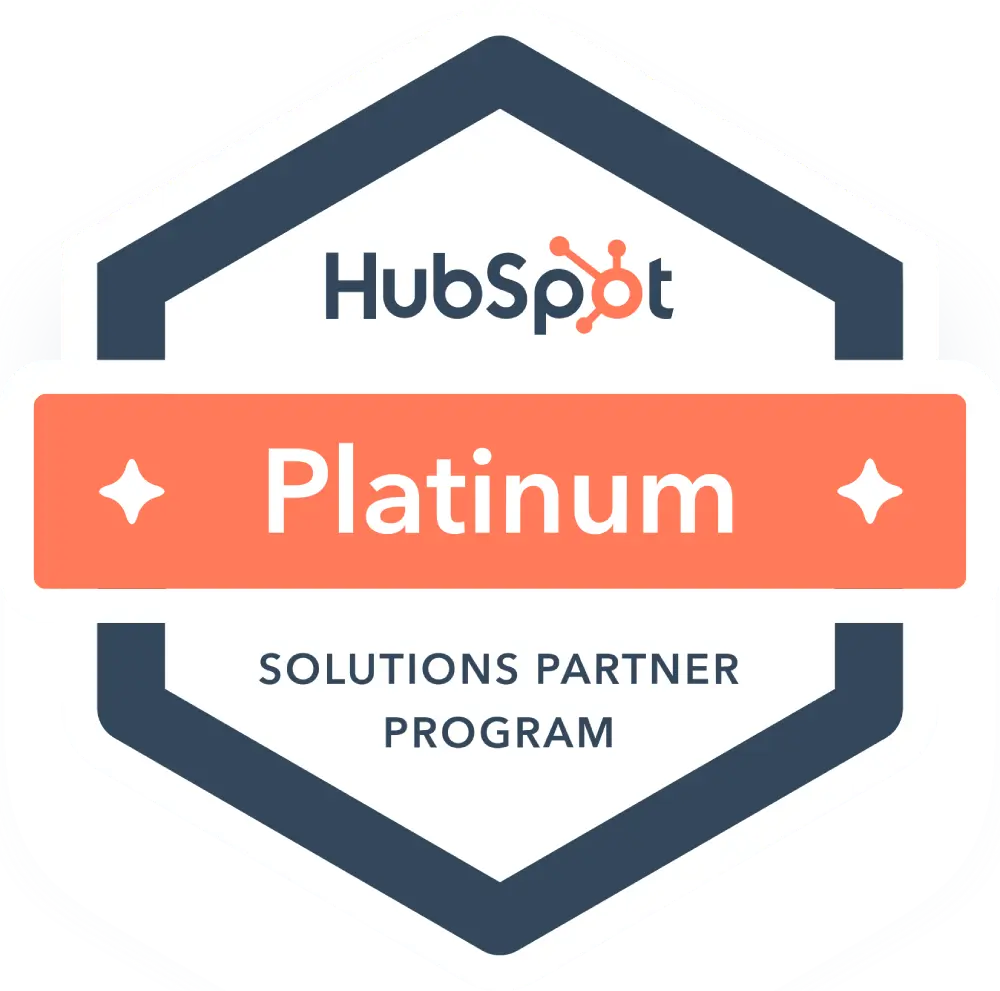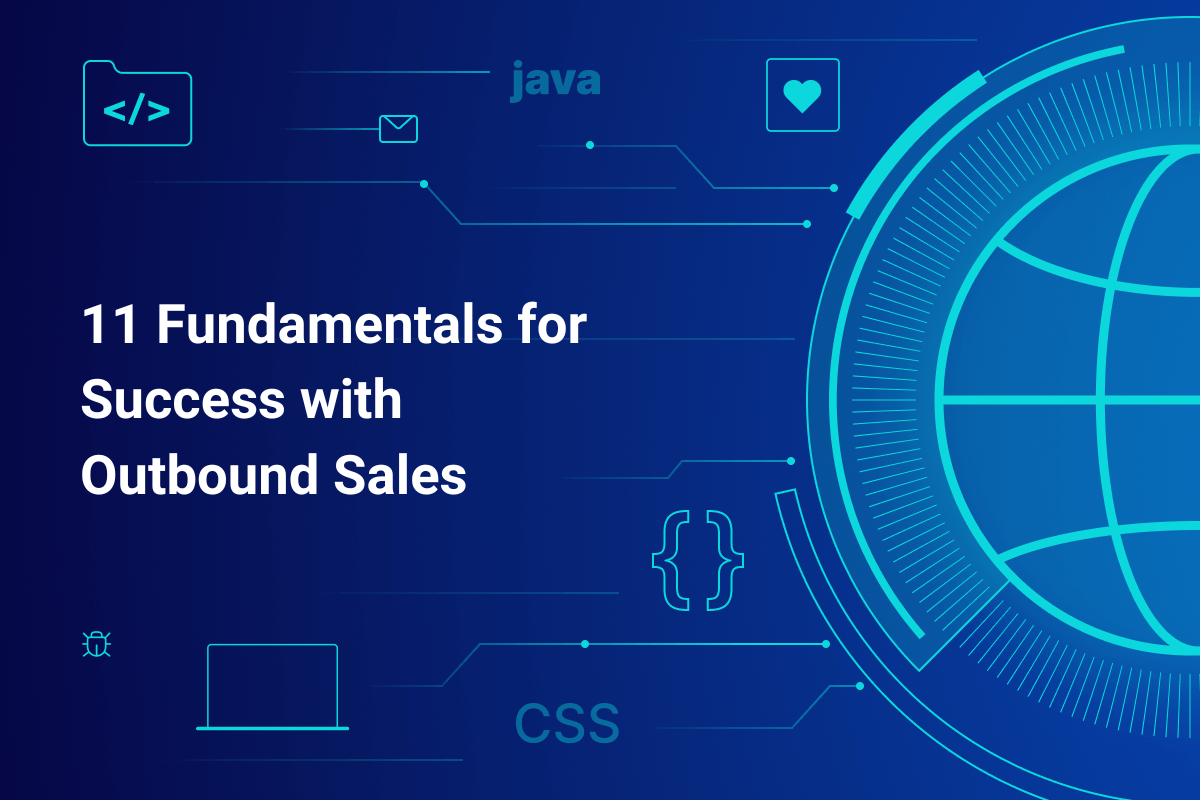In the bustling world of B2B startups, outbound sales is akin to a rite of passage. This sales strategy is not just about making cold calls or sending unsolicited emails; it’s about actively reaching out and fostering relationships with potential clients. But in a time of instant messaging, email, and social media, does it really pay to pick up the phone and call?
The answer, somewhat surprisingly, is yes. Companies that avoid cold calling see 42% less growth than those that employ the strategy. And if you want to get to the C-suite dealmakers, you should dial them up: 57% prefer to be reached by phone.
While the “old ways” of getting sales still work, navigating the complexities of B2B outbound sales’ many facets can feel overwhelming for startups. This post aims to simplify that journey. We will delve into understanding what outbound sales entails, highlight its significance, dissect its unique challenges for startups, and most importantly, unravel the critical fundamentals for achieving success in outbound sales.
If you’re eager to elevate your startup’s sales game, join us on this insightful expedition into the heart of outbound sales.
What is outbound sales, and why is it so important?
Outbound sales is a proactive approach where sales teams actively reach out to potential clients, rather than waiting for them to come knocking. Think of it as the opposite of inbound sales, where businesses create content and strategies to attract potential leads organically.
Historically, outbound sales were synonymous with cold calls, door-to-door pitches, and TV and radio ads. However, with the dawn of digitalization, it has evolved to include emails, social media campaigns, and webinars.
For B2B startups, outbound sales is crucial. While inbound strategies cultivate long-term organic growth, outbound sales generate immediate opportunities—allowing startups to build clientele, drive rapid revenue, and establish a foothold in the competitive business landscape.
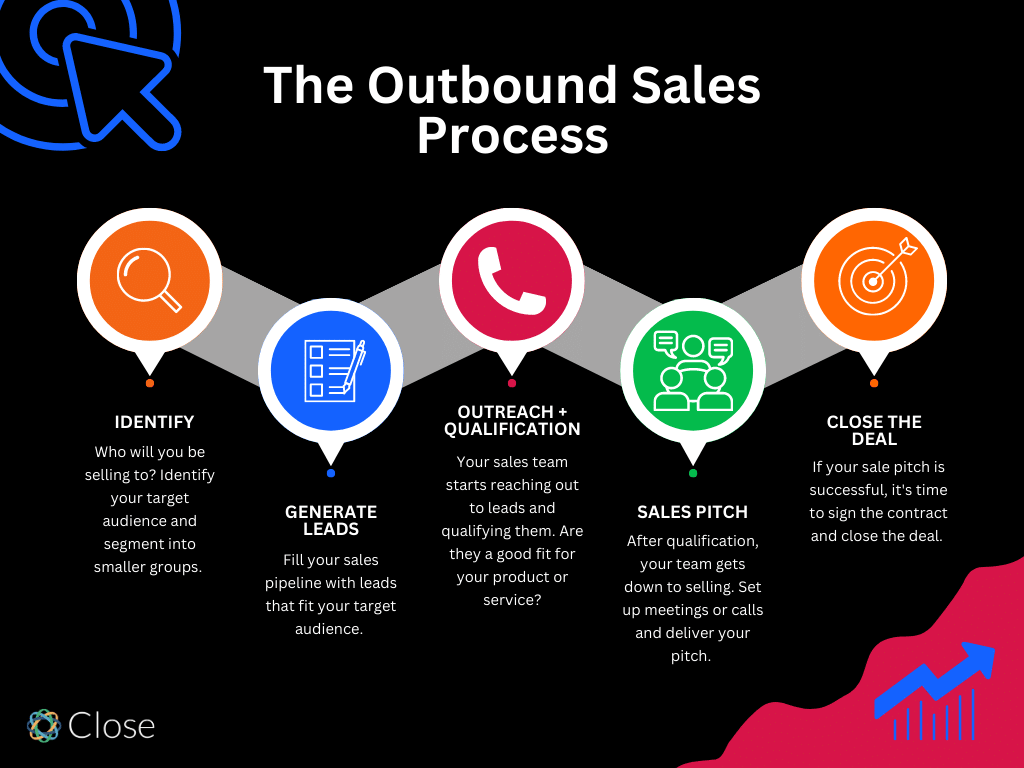
Why B2B Outbound Sales Differs for New Businesses
Startups have a fascinating position in the B2B marketplace. They’re nimble, often much more so than their colossal counterparts. This agility allows them to quickly adapt to evolving market needs or pivot their strategies.
Startups frequently stand at the forefront of innovation, introducing disruptive solutions and pioneering fresh approaches that might be too risky or radical for established entities. This ability to differentiate becomes a strategic advantage, enabling them to fill gaps in the market or cater to unique niche audiences.
Yet, along with these advantages come challenges.
The most prominent among these is the struggle with limited brand recognition and building trust. Without the longstanding reputation that older firms have built, startups often need to work doubly hard to prove their credibility. This means that outbound sales strategies for startups aren’t just about showcasing products or services. It’s about narrating compelling brand stories, emphasizing their unique value propositions, and assuring potential clients of their reliability.
On top of this, startups might enjoy the benefit of being lean, allowing for more personalized, bespoke solutions and customer interactions—which can be a boon in outbound sales if leveraged correctly.
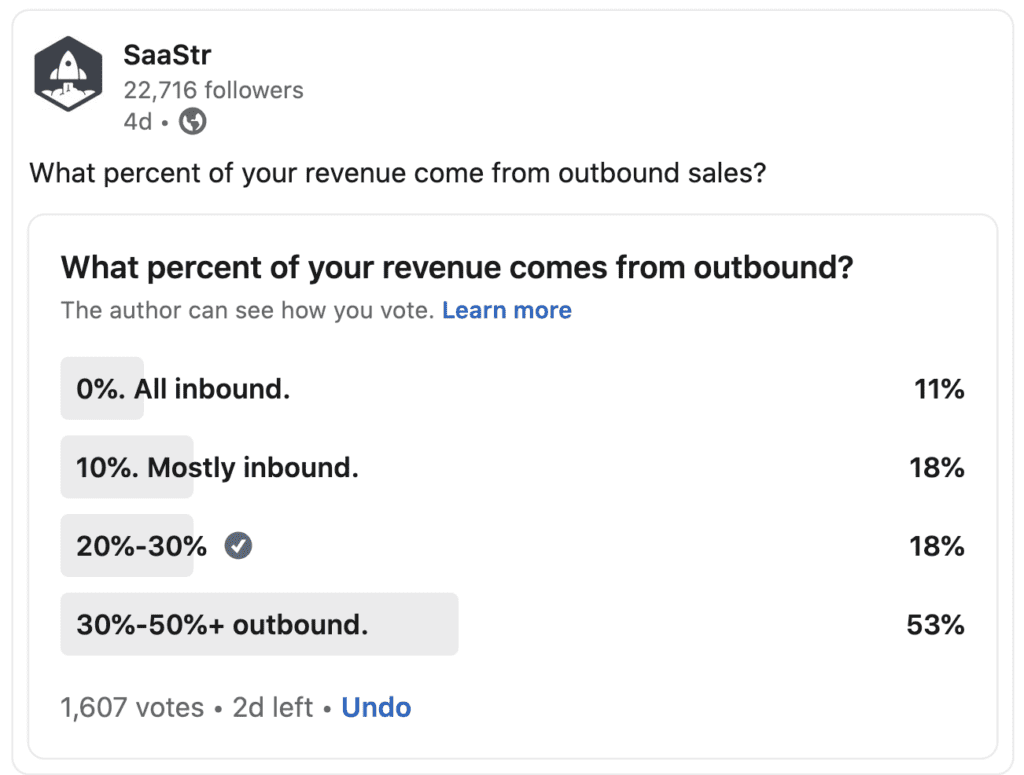
11 Fundamentals of Successful Outbound Sales
To master outbound sales, you need to understand the fundamentals. Here are eleven core elements of a successful outbound sales strategy to help you beat the competition:
1. Targeting and Segmentation
The first rule of outbound sales is to know your audience. Not every business or individual will need your product or service, and not all of them can buy. You can tailor your messaging by segmenting your target market, ensuring it’s directed towards those most likely to convert. This means considering demographics, firmographics, and even psychographics.
2. Research and Personalization
With the modern buyer being inundated with sales messages daily, personalization is no longer a nice-to-have; it’s essential. Dive deep into understanding your prospects—what challenges do they face? What are their business goals? Armed with this research, you can craft messages that resonate on a personal level, making your outreach stand out.
3. Value Proposition
Startups must clarify why prospects should choose them over established competitors. Your value proposition should succinctly highlight what makes your offering unique and beneficial. More than features, focus on the advantages and outcomes a business can expect from choosing you.
4. Multi-Channel Approach
While cold emails or calls might be the first things that come to mind, the modern sales process is multi-faceted. Consider leveraging social media, webinars, content marketing, and events to reach your prospects. Different channels cater to different stages of the buyer’s journey, allowing for a more comprehensive approach.
5. Cold Calling Techniques
Cold calling isn’t dead, but it has evolved. With gatekeepers and increasingly elusive decision-makers, your strategy needs finesse. Training in objection handling, crafting engaging openings, and leveraging social proof can make all the difference.
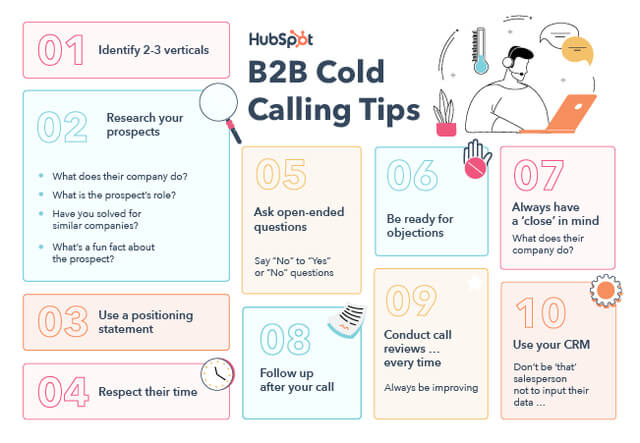
6. Follow-Up Strategy
Persistence is vital. Most sales don’t happen on the first, second, or even third contact. Creating a systematic follow-up strategy ensures that leads don’t go cold, helping nurture prospects till they’re sales-ready.
7. Utilize Technology
From CRM systems to AI analytics and marketing tools, technology can significantly streamline and optimize the outbound sales process. They offer insights, automate tasks, and ensure no opportunity slips through the cracks.
8. Training and Development
An effective salesperson today requires a diverse skill set—beyond product knowledge. They need to be adept at relationship-building, storytelling, and even content creation. Regular training keeps the sales team sharp, updated, and competitive.
9. Measuring and Analyzing
What gets measured gets managed. Regularly assess key metrics, from lead response time to conversion rates. This not only highlights areas of success but also pinpoints areas of improvement.
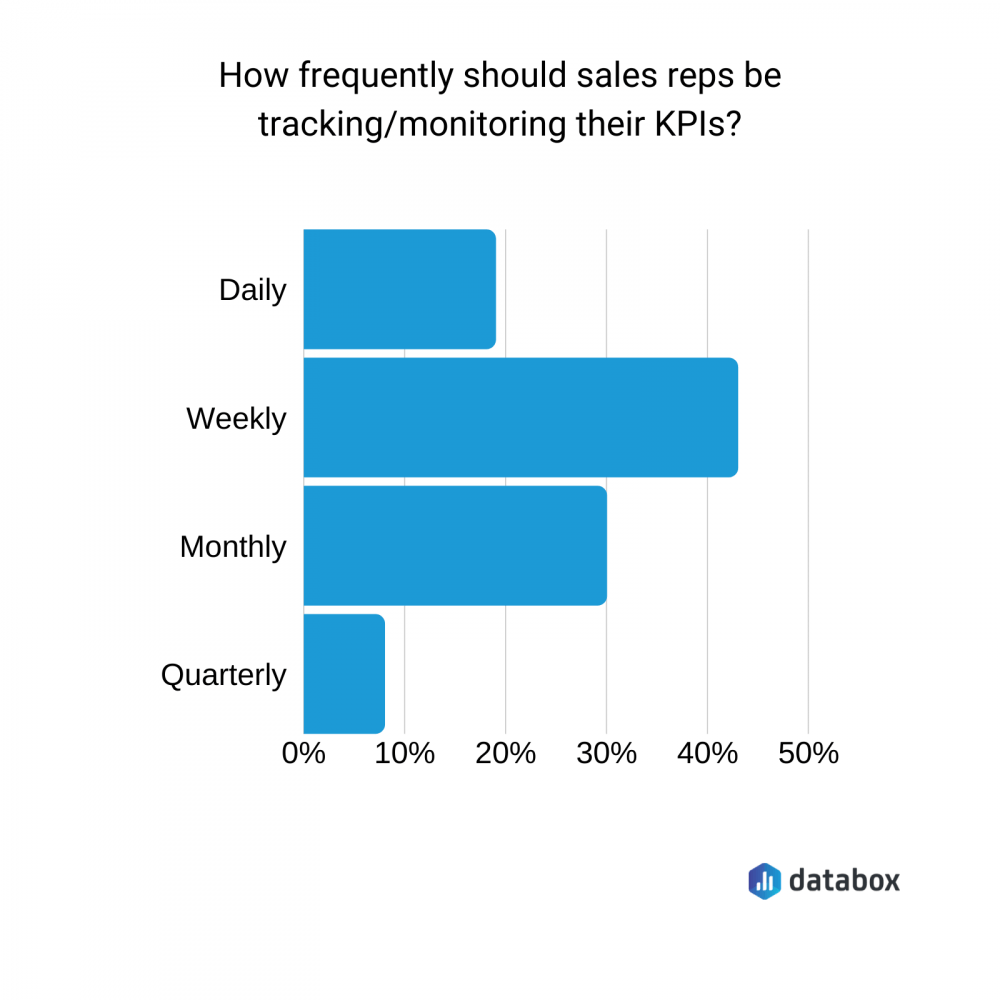
10. Build Trust and Relationships
In B2B sales—and especially for startups—relationships are everything. It’s not just about a one-off sale but fostering a partnership. Building trust ensures not just an initial conversion but potentially a lifetime customer.
11. Compliance and Ethical Considerations
In a world increasingly concerned with privacy and ethics, your outbound strategy must respect regulations and consider ethical implications. This means being transparent, seeking permission where necessary, and prioritizing the prospect’s comfort and trust.
Remember, outbound sales isn’t just a numbers game. It’s a blend of strategy, understanding, and persistence, all aimed at forging lasting business relationships.
Embracing the Outbound Sales Journey
When done right, outbound sales isn’t just a tactic; it’s a journey. A journey that begins with precise targeting, is nurtured through personalization, and thrives on relationship-building. Each fundamental we’ve discussed isn’t just a standalone strategy; they are integral pieces of a larger puzzle.
The tech-savvy, agile nature of startups provides an exciting opportunity to redefine outbound sales and reach customers in impactful ways. However, charting this journey can be complex and requires strategic planning.
The next logical step? Crafting a powerful outbound sales strategy, tailor-made for your startup’s unique challenges and advantages. This is where partnering with the right agency makes all the difference. mvpGrow, with its niche expertise in startup marketing, is positioned perfectly to guide startups on this journey. We understand the landscape, and more importantly, we know how to navigate it.
Ready to amplify your outbound sales efforts? Book a free Zoom consultation with mvpGrow and embark on your road to success. Your outbound sales journey starts here.

The Founder & Chief Getting Sh%T Done Officer of mvpGrow. After about 8 years as a hired hand some of the largest (and smallest) B2B SaaS companies worldwide I decided to hang up my employee slippers and lace up my growth agency cleats. But just because I’m an agency doesn’t mean we can’t chat (no charge). Please email me on any topic and I will gladly reply: eyal@mvpgrow.com
